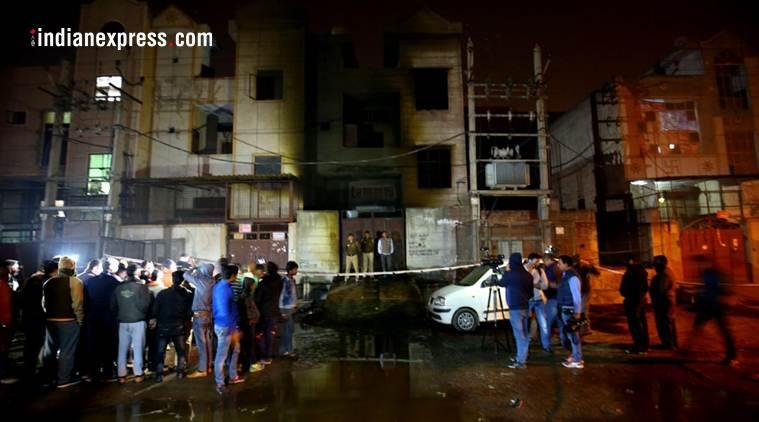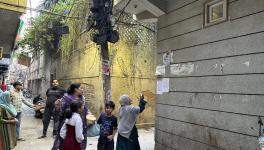Bawana Factory on Fire

Image Coutesy: The Indian Express
On June 11, reports came in about a fire in a rubber factory. This is the 7th reported incident of a factory fire in Delhi this year,a total of 28 workers have lost their lives in factory fires in 2018 so far. While the previous 6 incidents claimed lives of workers, no casualties occurred this time. Claims of the fire department suggest that calls of a fire came in early morning, ambulances and fire brigades made it in time and no lives were lost.
A ghastly incident was reported in January this year, when many workers died in an illegal fireworks factory in Bawana. The official report suggested 17 deaths, however workers there had made the claim that around 35 were trapped inside. A major reason of the deaths was that the factory door had been locked from outside, windows were barred, and those who managed to escape, had jumped off the roof of the building.
The norm is to have a fire post within a 3-4 km radius and a fire station within a 5-7 km radius of every such settlement, as per the Master Plan of Delhi 2021. There is no such arrangement in Bawana. In fact the Delhi Fire Service is reportedly suffering from severe under-staffing of 40%, and is short of fire fighting equipment. More pertinently, it is unable to monitor fire safety measures in this vast population of the Capital.
Working conditions have been constantly deteriorating in industrial units across the country, especially after liberalisation. Under the pretext of ‘ease of doing business’, workers rights are being trampled. It is reported that workers in the Bawana factory were getting upto Rs.200 per day for a 10 hour work shift. That’s Rs.6000 per month for 10 hour work per day. The legal minimum wage in Delhi is Rs.13,350 per month (Rs.513 per day) for an eight hour work day. Most industrial units don’t have to register themselves, the workers never are paid minimum wage, they are often forced to toil for 12 hours, while being legally compelled to work for only 8, in case of injury or death, no compensation is paid. Workers have no access to social security schemes. All these are violations of labour laws on the part of the employer. Had there been labour inspectors to ensure these laws are implemented, such tragedies might not have happened. However, the labour department is too understaffed to conduct such inspections across the city, or is complicit of these violations.
Bawana Industrial Area, where this factory was located, was set up after industries were relocated to designated industrial areas in the late 1990s. Reports suggest, nearly 12,000 factory units are functional here. Although there is reserved space for low income housing, most workers in Bawana’s industrial belt stay in slums in the vicinity. This slum itself was devastated by a fire in April 2017 when around 1000 jhuggis were burnt down. Four years earlier, in 2013, the same cluster had witnessed a similar fire that raised to ashes some 1000 jhuggis. These closely packed-in structures have been sites of repeated fires.
Industrial pockets such as the Bawana area exist across the country. Workers are made to toil in atrocious conditions, they work tirelessly to fill the pockets of their employers. They live in small clusters, and every day of work is a battle for them. As incidents such as these continue to occur, labour is forced to work at the risk of its life.
Get the latest reports & analysis with people's perspective on Protests, movements & deep analytical videos, discussions of the current affairs in your Telegram app. Subscribe to NewsClick's Telegram channel & get Real-Time updates on stories, as they get published on our website.
























